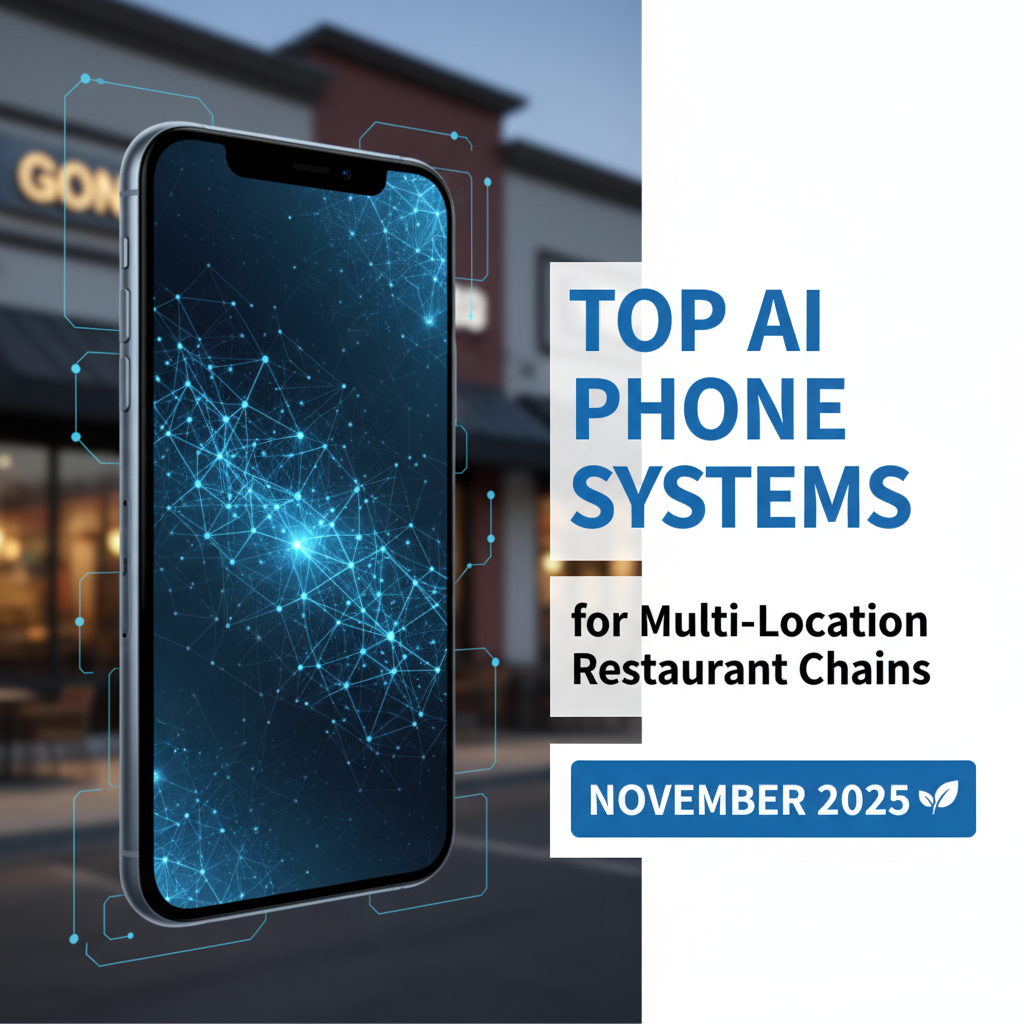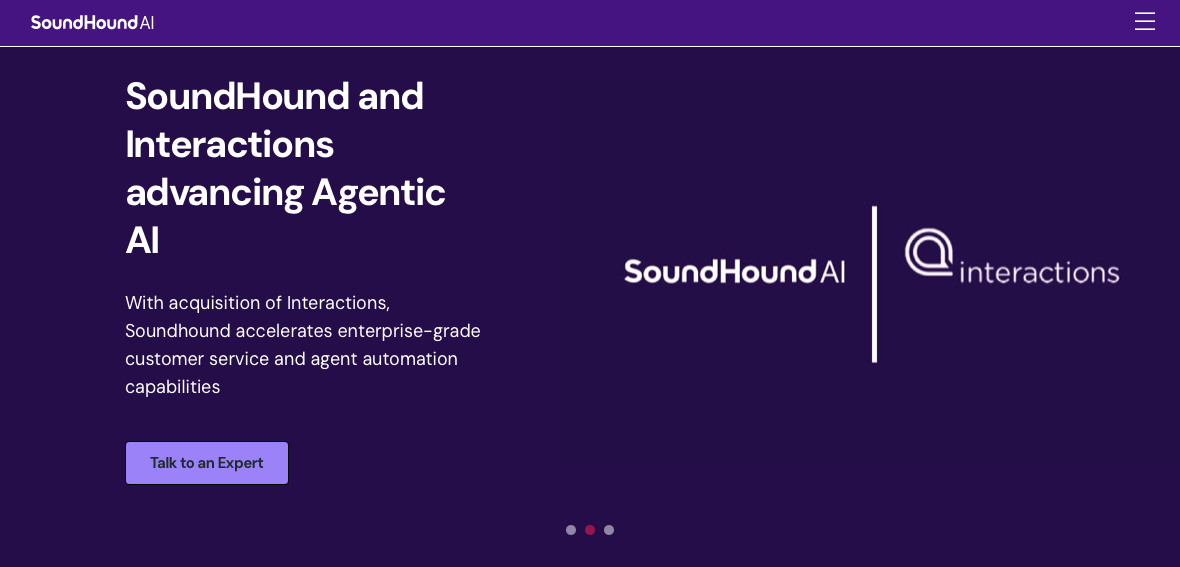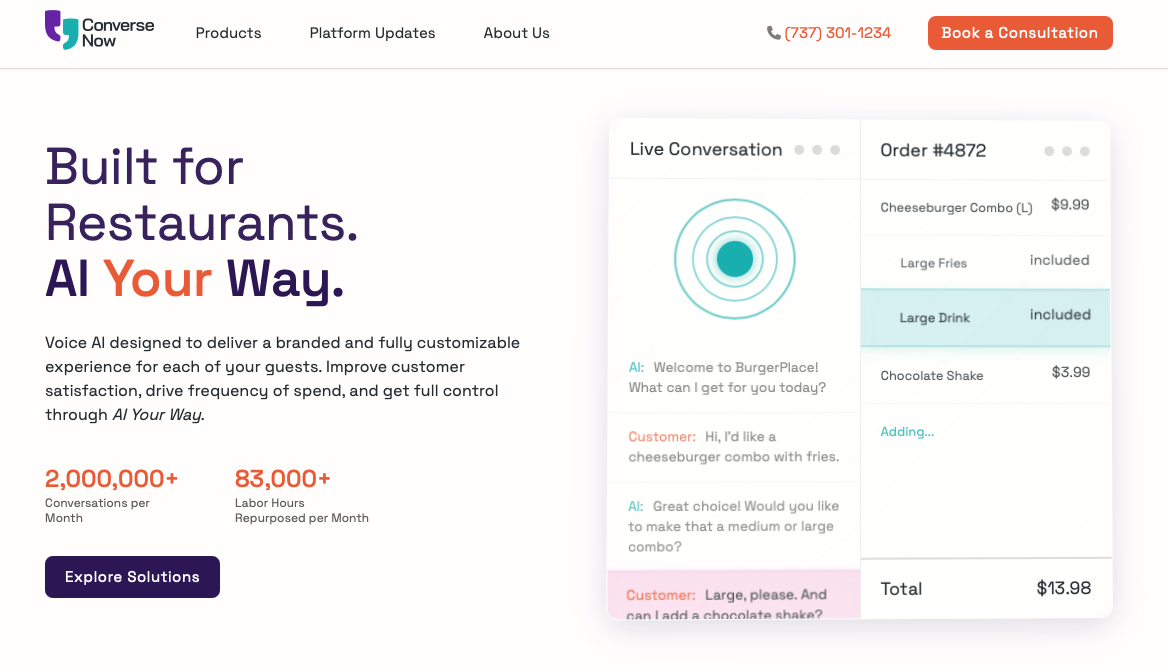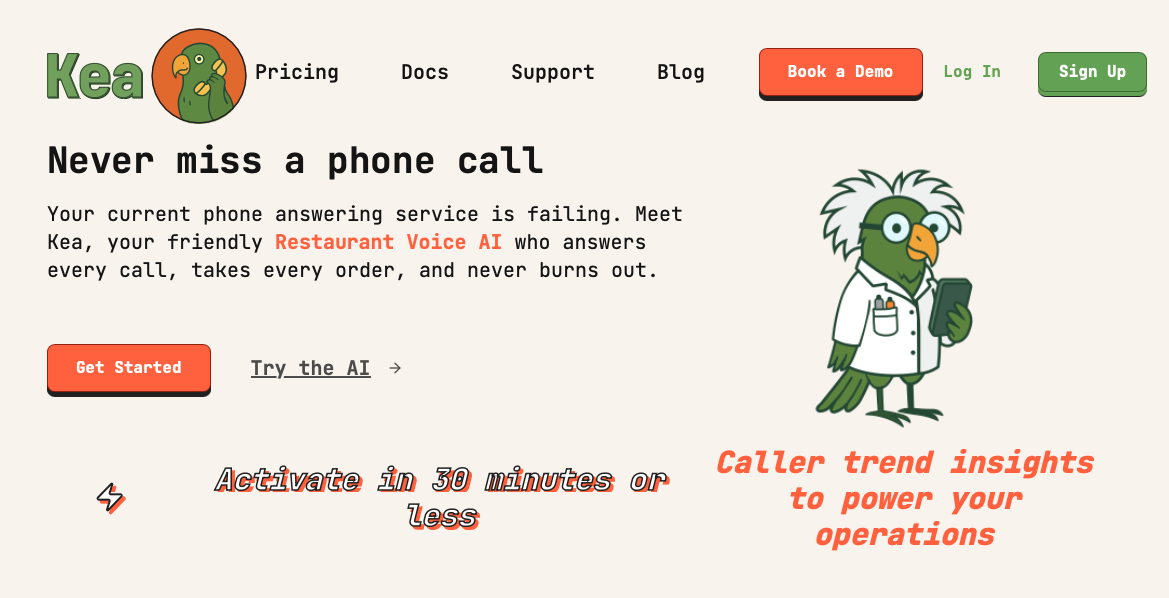
Running multiple restaurant locations means every ringing phone competes with guests waiting at the counter. During the dinner rush, those calls often go unanswered, and so does the revenue behind them. Modern AI phone systems eliminate that trade-off by answering every call instantly, taking orders, booking reservations, and syncing directly with your POS across all locations. While reducing missed calls, these systems also create a consistent guest experience that scales smoothly.
TLDR:
Multi-location restaurant chains lose revenue on almost half of unanswered calls during peak hours
AI phone systems handle high volumes of concurrent calls and sync orders directly to POS systems
Restaurants using modern AI systems report up to 22% higher revenue and 17% lower labor costs
Built-in upselling and smart prompts increase average ticket size by up to 25%
Chain-wide analytics reveal call volume, conversion, and revenue trends across every location
AI phone systems for multi-location restaurant chains are automated voice agents that answer customer calls, take orders, book reservations, and handle common questions across every location in your network. These systems use conversational AI to understand what callers want and respond naturally in real time.
The business case is straightforward: almost half of calls to restaurants go unanswered, and each missed call is potential revenue walking out the door. When you're managing five, fifty or five hundred locations, that adds up fast.
These systems differ from legacy phone setups in three ways:
They handle unlimited calls simultaneously, so no customer ever hears a busy signal regardless of call volume spikes during lunch or dinner rush
They integrate directly with your POS and reservation systems, syncing orders and bookings without manual entry or staff intervention
They learn your menus, policies and hours per location, so callers get accurate answers whether they're ordering from your Dallas or Denver spot
For chains, this translates to consistent service across every store, predictable labor costs, and zero hold times.
We tested each system against criteria that multi-location operators need: scalability, integration depth and franchise-ready features.
Call capacity came first. Can the system handle fifty simultaneous calls during dinner rush across locations without creating bottlenecks? Our testing centered on systems with unlimited call handling.
POS integrations were second. We checked which systems sync orders directly into Toast, Square, Clover and Aloha versus those requiring manual ticket entry or workarounds.
Multi-location management was third. Does the system support chain-wide menus with per-store overrides for hours, specials and local offerings? Can you roll up analytics across regions?
We also scored upselling capabilities, order accuracy and deployment speed based on publicly available case studies, technical specs and verified customer outcomes.
Loman answers every call, takes complete orders, books reservations, and syncs directly into your existing POS. The system deploys in under 24 hours without disrupting operations. Designed for multi-location groups, Loman adapts to each store’s unique hours, menus, and specials while maintaining centralized oversight. Its intuitive setup minimizes training, and built-in analytics help operators track performance and revenue gains from day one.

The system handles unlimited concurrent calls across all locations. During peak hours, every caller gets answered instantly with no busy signals or hold times.
Loman integrates natively with Toast, Square, Clover, Aloha, and Olo. Orders flow directly into your kitchen as clean tickets, and reservations sync automatically to your booking system without manual entry or staff interruptions.
Multi-location groups get chain-wide menu control with per-store overrides for hours, specials and local offerings. Analytics roll up by region to track call volume, revenue and patterns across your entire network. The built-in upselling engine prompts callers with add-ons and combos, lifting average ticket sizes.
Restaurants using Loman report up to 22% higher revenue from recaptured calls and reduce labor costs by as much as 17%.
SoundHound provides enterprise-level voice recognition tech for automated phone interactions and drive-thru order management across large restaurant chains with dozens or hundreds of locations.

SoundHound's AI handles smart ordering across carryout, curbside and delivery channels. The system integrates with POS and loyalty programs to keep orders in sync with existing workflows. The company reports processing over 100 million customer interactions.
The system can be configured to answer common FAQ questions about hours, parking and wait times. Chains can customize responses per location or region.
The limitation: SoundHound is geared toward mid-to-large operators with 50-plus stores. Smaller chains or growing multi-unit groups will find the setup complex and the pricing out of reach. The system requires meaningful investment in deployment and isn't designed for restaurant groups scaling from five to fifty locations.
ConverseNow automates order taking across thousands of quick-service locations in 43 states, targeting drive-thru and phone orders for national QSR brands.

The system uses multilingual voice assistants with customizable personalities. A menu management tool adapts to limited-time offers and seasonal changes. The company reports 23% higher average orders and 20% revenue growth.
The limitation: ConverseNow requires enterprise-level contracts, making it inaccessible for single-location independents or smaller multi-unit groups managing five to twenty locations.
Kea offers self-service voice AI that restaurants can implement in as little as an hour, making it one of the fastest deployments available.

The system uses conversational AI to customize orders, confirm details and suggest add-ons. Kea reports boosting average order value by up to 25% through its upselling prompts.
Kea integrates with over eleven POS systems including Toast, Square, Clover and Olo. The "human-in-the-loop" feature routes complex requests to staff when needed.
The limitation: Kea focuses exclusively on phone ordering. If you need reservation management, FAQ handling or customer engagement beyond voice calls, you'll need additional tools. The system works well for order-heavy concepts but lacks the depth chains need to manage multiple channels from one dashboard.
Most AI phone systems force you to choose between enterprise complexity or basic automation. Loman gives growing restaurant groups both power and simplicity.

Loman combines complete order taking, reservation management and multi-location control in one deployment. While 65% of calls go unanswered in hospitality, Loman guarantees complete call coverage through AI-assisted answering, with unlimited concurrent handling across every location.
The difference is architectural. SoundHound and ConverseNow require enterprise contracts and weeks of implementation. Kea handles orders but can't manage reservations or provide franchise-level control. Loman deploys in under 24 hours with native POS integrations, per-store menu overrides and roll-up analytics that scale from five locations to five hundred.
Loman can be live in under 24 hours per location, with white-glove setup included. Enterprise-focused systems like SoundHound and ConverseNow typically require 2-4 weeks or longer for full implementation.
Modern AI phone systems handle unlimited simultaneous calls, so every customer gets answered instantly even during peak hours. No caller ever hears a busy signal or gets placed on hold, regardless of how many locations are calling at once.
Yes, the best systems support chain-wide menu templates with per-store overrides for local hours, specials, seasonal items and regional offerings. Analytics roll up across all locations so you can track performance by store, region or brand.
Both. Restaurants report up to 22% higher revenue from answering previously missed calls and using built-in upselling prompts, while reducing labor costs by as much as 17% by off-loading routine phone tasks from front-of-house staff.
Leading AI phone systems integrate natively with Toast, Square, Clover, Aloha, and Olo, sending orders directly into your kitchen as clean tickets without manual entry or staff intervention.
Missed calls can quietly drain thousands in potential revenue across a multi-location restaurant group, but AI phone systems remove that hidden loss without adding complexity. The best solutions integrate directly with your POS, scale easily across locations, and deliver a smooth guest experience on every call. With tools like Loman, operators can turn missed calls into captured orders, free up staff to focus on hospitality, and gain real-time visibility into performance across every store.

Enter your information in the form to receive a call from Loman and place an order like a customer would!